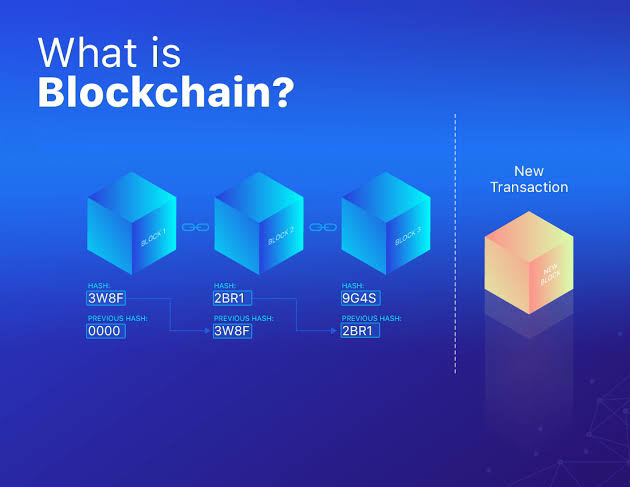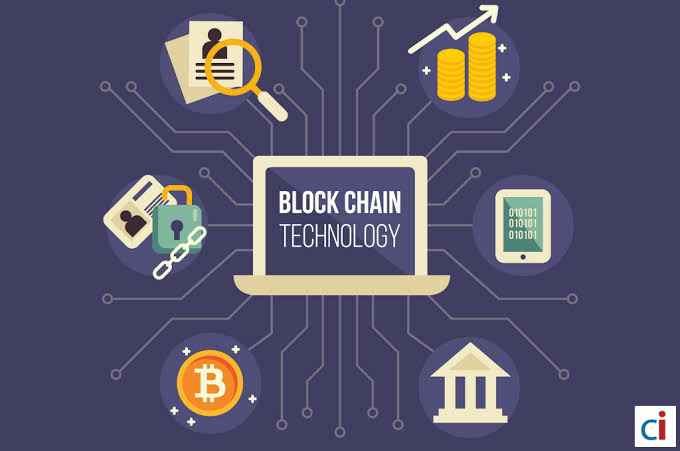Blockchain is a distributed ledger technology that is gaining traction in a variety of industries, including finance, supply chain management, and healthcare. It has the potential to revolutionize the way we interact with the world around us.
In this blog post, we will explore the basics of blockchain technology, its potential applications, and the challenges that it faces. We will also discuss the future of blockchain and how it could change the world.
What is Blockchain?
Blockchain is a distributed ledger technology that allows for secure, transparent, and tamper-proof transactions. It is a system of recording information in a way that makes it difficult or impossible to change, hack, or cheat the system.
Blockchain is made up of blocks of data that are linked together in a chain. Each block contains a timestamp, a link to the previous block, and data. This creates a secure and chronological record of all transactions that have ever taken place on the blockchain.
How Does Blockchain Work?
Blockchain works by using a peer-to-peer network of computers to store and verify transactions. When a transaction is made, it is broadcast to the network of computers. The computers then verify the transaction and add it to the blockchain.
Once a transaction is added to the blockchain, it cannot be changed or deleted. This is because each block is linked to the previous block, and any change to one block would invalidate all of the blocks that follow it.
What are the Benefits of Blockchain?
There are many benefits to using blockchain technology. Some of the most notable benefits include:
- Security: Blockchain is a very secure technology. The data stored on the blockchain is encrypted and distributed across a network of computers. This makes it very difficult to hack or tamper with the data.
- Transparency: Blockchain is a transparent technology. All transactions that take place on the blockchain are public and can be viewed by anyone. This makes it very difficult for fraud or corruption to occur.
- Efficiency: Blockchain is a very efficient technology. Transactions can be processed quickly and cheaply on the blockchain. This makes it ideal for use in applications where speed and cost are important factors.
What are the Applications of Blockchain?
Blockchain technology has the potential to be used in a wide variety of applications. Some of the most promising applications include:
- Finance: Blockchain could be used to create a more secure and efficient financial system. For example, it could be used to track the ownership of assets, process payments, and clear transactions.
- Supply chain management: Blockchain could be used to track the movement of goods through the supply chain. This could help to improve efficiency, reduce costs, and prevent fraud.
- Healthcare: Blockchain could be used to store and share medical records. This could improve the quality of care and make it easier for patients to access their records.
- Government: Blockchain could be used to create a more transparent and efficient government. For example, it could be used to track government spending and voting records.
The Future of Blockchain
Blockchain technology is still in its early stages of development, but it has the potential to revolutionize the way we interact with the world around us. As the technology continues to evolve, we can expect to see it being used in a wider variety of applications.
Blockchain could have a major impact on a number of industries, including finance, supply chain management, and healthcare. It could also be used to create a more transparent and efficient government.
The future of blockchain is bright, and it is sure to have a major impact on the world in the years to come.
Specific Applications of Blockchain
In addition to the general applications mentioned above, blockchain has also been proposed for a number of specific applications. Some of these applications include:
- Smart contracts: Smart contracts are self-executing contracts that are stored on the blockchain. They can be used to automate a variety of transactions, such as the exchange of goods or services.
- Digital identity: Blockchain could be used to create a secure and tamper-proof digital identity. This could be used to improve security and convenience in a variety of applications, such as online banking and voting.
- Intellectual property: Blockchain could be used to track and manage intellectual property rights. This could help to prevent counterfeiting and piracy.
These are just a few of the many potential applications of blockchain technology. As the technology continues to evolve, we can expect to see it being used in even more innovative ways.
Challenges Facing Blockchain
Despite the many potential benefits of blockchain technology, there are also a number of challenges that need to be addressed before it can be widely adopted. Some of these challenges include







0 Comments